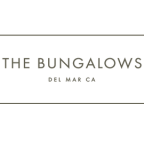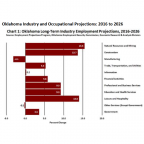Why Become a Professional Nurse?
Nursing as a profession is a highly regarded career with some of the highest requirements of honesty and ethics among occupations. Nursing has emerged as the largest health care profession with over 2.7 million jobs. With over 100,000 uninhabited positions and a ever-growing requirement for healthcare employees, the career outlook is excellent for the nursing field. National Center for Workforce Analysis, a firm of the United States Department of Health and Human Services, predicts a deficit of 808,416 nurses by the year 2020. Such an analysis and forecast is backed by really strong reasoning and research.
Developments and innovation in medicine and technology has led to increased life spans. Elderly populations are living much longer. Many within this population will require increased care and nursing. As such, need continues to rise for the nursing staffing to meet this demand. The requirements for more educated and experienced nurses grows annually. With more insurance companies entering the medical arena to try to lower the cost of healthcare, demand for nurses, outside hospital settings has also risen. In addition, the current nursing labor force itself is aging, with many expected to retire within the next decade, exacerbating the demand for new nurses. Hence, nurses with BSN degrees can expect very good job prospects and relatively secure careers.
What Nurses Do in Practice
Nurses blend understanding of science and technology with the art of care and compassion. Nursing provides the opportunity to save and enhance lives, take care of the sick and physically disabled, educate patients and individuals towards attaining good health and, above all, the sensation of helping someone in their times of health problems and emotional need. There is no higher service than looking after the needy and infirmed. Nurses are needed to provide basic responsibilities, that includes but is not limited to providing treatment, health education, emotional support, record upkeep, operating medical devices in addition to counseling client and their family members about the management of their health issues. Registered Nurses (RNs) likewise supervise basic health screening and immunization clinics, organize public workshops, motivate blood donation drives, and other medically-related activities.
Three out of five nurses in the United States operate in health centers. Most of the others work in centers, home healthcare, extended care settings, schools, colleges, universities, the general public health services, and nonprofit agencies throughout the United States and other countries. Nursing can be a difficult job with constant exposure to despair and suffering, anxiety, work pressures, extreme or little patient contact and occupational threats including -- but not limited to -- transmittable diseases, radiation exposure, unexpected needle sticks, chemicals, anesthesia, back injury and psychological anxiety. Role autonomy and independence, innovation, technical knowledge, and team effort are attributes of this career, accompanying individual fulfillment and professional benefits.
Within the very recent past, the BSN has been proposed as the standard, entry-level educational requirement for the nursing profession.
Biology-related courses always seem to serve prospective students well.
Educational and Training Requirements for Nurses
Attendance at an accredited nursing school is an entrance requirement to this occupation, and practically all of them require a high school diploma with sound scholastic standing in English, Algebra, Biology, Chemistry, and Psychology with a GPA score of at least 3.0. Computer system experience is an asset. Leadership and organization abilities are important to this occupation. Many schools will still require applicants to clear the National League for Nursing (NLN) Pre-admission exam besides the SAT exam. Over 1,500 nursing programs in the US provide three different educational paths towards becoming a Registered Nurse (RN). Bachelor of Science in Nursing (BSN) is a four-year program offered at colleges and universities. An associate Degree in Nursing (ADN) is a two-year program offered at many 2-year junior and community colleges. Some healthcare facility schools of nursing and universities provide an ADN degrees. A Health Center Diploma is a 2 to 3 year program based in medical facility settings. Numerous diploma schools are associated with junior colleges where students take the fundamental science and English requirements.
The ATI TEAS Test (Test of Essential Academic Skills) is a multiple choice exam that measures entry level skills and abilities of nursing program applicants.
Opportunities are optimal with a BSN degree. BSN is a requirement for getting a master's degree or becoming an Advanced Practice Nurse (APN). The American Association of Colleges of Nursing (AACN) recognizes the BSN degree as the minimum academic requirement for an expert nursing practice. Even though graduates can start practice as a Registered Nurse with an ADN or diploma, the BSN degree is a minimum for those nurses looking for to assume functions as case-managers or supervisors or advance within health administration. Tuition cost depends on your college and state of residence, however financial aid and scholarships are offered to assist with such needs. There are professional and technical schools too. These provide one-year courses towards becoming a Practical Nurse or a Vocational Nurse.
Once graduated, the next vital thing is to get licensed for practice in the State of your preference. At present, twenty-five (25) states are signatories to the Nurse Licensure Compact Agreement (NLCA). The NLCA allows a nurse licensed in one of the twenty-five states to practice in any of the other twenty-four NLC member states. Licenses can be obtained by passing the national licensing examination NLCEX-RN to become a Registered Nurse, and the NLCEX-PN for becoming Licensed Practical Nurse (LPN) or Licensed Vocational Nurse (LVN) as in Texas, California. LPNs and LCNs offer care for the sick, disabled and injured, under the direct supervision of RNs and MDs.
Specialties Within the Nursing Profession
Nursing profession is complete of opportunities for those who want to specialize and pursue greater education. A few popular specialties are
- AIDS Care Nursing
- Cardiac Rehabilitation Nursing
- Correctional Nursing
- Enterostomal Therapy Nursing
- Gastroenterology/Endoscopy Nursing
- Infection Control Nursing
- Intravenous Therapy Nursing
- Long-Term Care Nursing
- Managed Care Nursing
Of course, there are several other specialties. The majority of the specializations are open to RNs with a BSN degree. In addition, there is increasing demand for APNs. APNs are main health care professionals, working separately or in collaboration with doctors. In most U.S. states, they are allowed to prescribe medications. The four specializations for APNs are
- Clinical Nurse Specialist (CNS)
- Nurse Anesthetists (CRNA)
- Nurse Midwives (CNM)
- Nurse Practitioners (NP)
CNSs supply expert assessment in any of the above referenced specializations. A CRNA administers anesthesia and monitors patients' important signs during surgical treatment. They also provide post-anesthesia care. CNMs offer medical care to women such as family planning, prenatal and neonatal care, and assist with labor and delivery. NPs provide fundamental preventive health care to patients. NPs are important for specialty care service providers in medically under-served locations. In most cases, APNs are qualified, but lower-cost medical care alternatives to physicians.
Executive, Management and Research Careers in Nursing
Advanced degrees available to nurses are masters (MSN), doctoral degree (PhD, EdD, DNS) and post-doctoral programs. Doctoral degrees can qualify a graduate for placements as a senior policy analyst, medical researcher, health system executive and as a nursing school professor or dean.
RNs might work as staff nurses or eventually become APNs. A few positions involve little or no direct patient contact. Such positions include Case Managers, Forensic Managers (applying understanding of nursing for legal enforcement, like dealing with and examining a victim of attack or abuse), Infection Control Nurses, Legal Nurse Consultants (help lawyers in medical cases by speaking with client, arranging records, and informing attorneys about medical conditions), Nurse Administrators, Nurse Informatics, Health Care Consultants, Public Policy Advisors, Medical authors and editors.
Do you have a good pair of shades? Professional career prospects are bright as mentioned earlier, and with enhancing demand, and the need to keep enough nurses in healthcare facilities, companies and lots of health care facilities have started providing rewards like signing incentives, subsidized training, and open-shift bidding. Shift bidding is an nascent, online auction-style method where employees can bid on uninhabited shifts at hourly rates higher than normal daily rate and (usually) less than agency rates, benefiting hospitals and nurses.
Nursing Profession Salaries & Benefits
Registered nurses are earning anywhere from $37,300 to in excess of $74,760 depending upon qualifications and experience, and job specialty. Average income can be approximated as $52,330 per year. Entry level RN can earn from $30,000 to $45,000 per year. This includes benefits typically of medical insurance, vacation pay, college tuition repayment, child care, pension strategies and more. Anticipated shortages of nurses in the intermediate future is going to tilt the circumstance more in the favor of nurses; thus, a person entering the profession in 2016 can look forward to a secure future with good prospects and benefits.
Entering the nursing field is not simply a way to make cash, but it's also about dedicating your life to service mankind, looking after the ill and helping to support them and their families in difficult times. The potential is huge and field of expertise choices aplenty. Nursing is a profession which abounds with personal satisfaction and excellent rewards.
For some getting-hired advice to new nursing grads, read Ten Tips to Getting Hired for Nursing Graduates at www.nursingexplorer.com.
Related Articles











